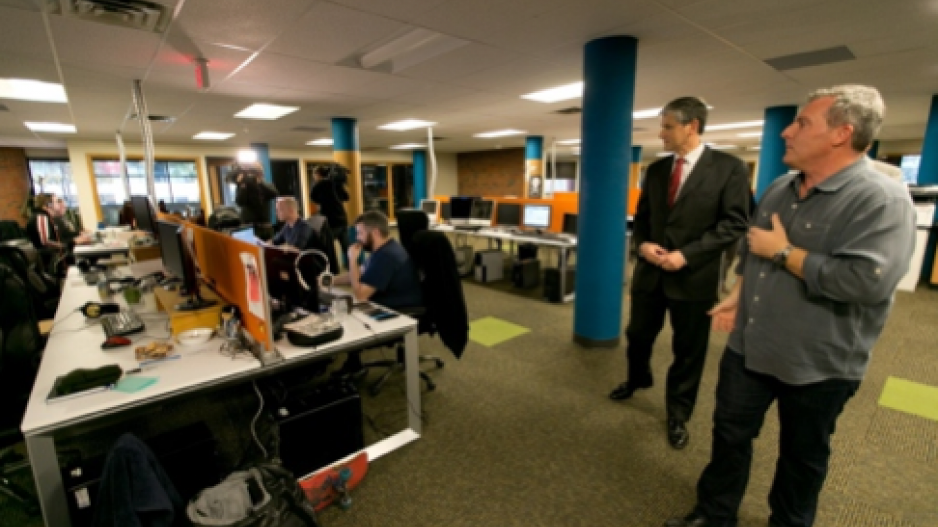By the end of this year, Victoria-based studios will launch seven new video games — a sign the high-value sector is growing rapidly within the capital region’s high tech industry.
“There are a lot of new products and productivity coming out of our gaming sector ... it’s quite exciting to see,” said Dan Gunn, chief executive of the Victoria Advanced Technology Council.
On Wednesday, four new games were highlighted during a tour of six downtown gaming studios involving Minister of Technology and Innovation Andrew Wilkinson and parliamentary secretary for the B.C. Jobs Plan Greg Kyllo.
The new games included:
- TinyMob’s Tiny Realms, which is played in more than 190 countries;
- MetalHead’s Super Mega Baseball, the first PlayStation 4 game developed in Victoria;
- Codename’s RPG Shards of Titan, which took 18 months to develop in collaboration with online hosting website Kongregate; and
- GameHouse’s new version of Slingo, one of the gaming industry’s most popular brands.
The remaining three games will be released within two to four weeks, Gunn said. Six of the games were developed wholly in Victoria, he said. “Which I think would be phenomenal for any city in the world, let alone a city with 20 game studios.”
There have been some bumps in the game sector. Nearly a year ago, Microsoft closed its downtown Victoria game design studio to consolidate its resources in Vancouver.
But video gaming is an expanding part of Greater Victoria’s high-tech sector. Today, game studios employ 240, up from 40 in 2006. Local gaming companies spent about $24 million in 2013, said a report from VIATeC. The average studio spends just over 70% on research and development.
More than 60% of the studios said they planned to hire new graduates this year, the report added. It also noted more than half of the studios are hiring co-op students and three quarters said they are interested in hiring co-op students in the future.
The report said 30% of Greater Victoria’s gaming workforce hold degrees or diplomas from a local college or university and 68% of employees were hired from within Victoria — making the gaming sector a powerful force for keeping young graduates in the region.
Gaming is a major economic generator around the world, with revenue estimated at $63 billion in 2012 by market research firm DFC Intelligence. It is predicting $78 billion by 2017.
Those working in studios earn an average salary of $75,000 a year in jobs focusing on art, business and engineering.
Skilled talent is needed in this region, Gunn said. “That’s the biggest thing that is holding back the overall tech sector and that includes gaming.”




